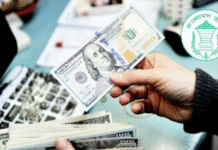
Finance Adviser Salehuddin Ahmed today (23 September) defended Bangladesh Bank’s recent purchase of nearly $2 billion from the market, arguing that the move was justified to stabilise the exchange rate.
Speaking to reporters after meetings of the Advisers Council Committee on Government Purchase and the Advisers Council Committee on Economic Affairs, Salehuddin Ahmed noted that Bangladesh’s current dollar reserves are inadequate to handle emergencies.
“Imagine if the country suddenly faces a major crisis and we must import essential goods immediately. Many assume foreign exchange is only for imports, but reserves are also our safeguard. Without savings, we face danger,” he said.
When asked by journalists why the dollar price is not falling despite lower demand since Bangladesh Bank is buying dollars from the market to keep the rate stable, the adviser said such measures are necessary.
“If the dollar rate is not kept relatively stable, the impact will be harmful,” he explained. “We must also consider the interests of remittance earners, who are our main driving force.”
Recalled his tenure as Bangladesh Bank governor during 2007–2008, Salehuddin said, “At that time, we had to deal with major natural disasters like Sidr and Aila, and we managed because we had reserves. That is why Bangladesh Bank is now trying to rebuild its reserve buffer.”
On today’s meeting decisions, the finance adviser said several key proposals were approved. These include upgrading the runway at Shah Amanat Airport in Chattogram, modernising the control room at Dhaka airport, and allowing imports of octane to address the current shortage and prevent disruptions to the fuel supply.
Regarding the upgrade of Chittagong’s Shah Amanat Airport, the financial adviser explained that the current Grade-1 runway needs to be upgraded to Grade-2 to accommodate large aircraft.
According to BB data, total dollar purchases through auctions have already reached $1.74 billion in the current fiscal year.
Stronger remittances and exports, along with the central bank’s buying spree, have lifted reserves to $25.67 billion as of September 11, according to IMF calculations, up from $24.50 billion a year earlier.
In the three years leading up to FY2024-25, the central bank sold over $25 billion from reserves to pay for fuel, fertiliser, and food imports.
But after the fall of the Awami League-led government in August last year, it suspended dollar sales for government imports, citing depleted reserves.
In May, BB adopted a floating exchange rate regime to meet IMF loan conditions, a year after introducing a crawling peg.









